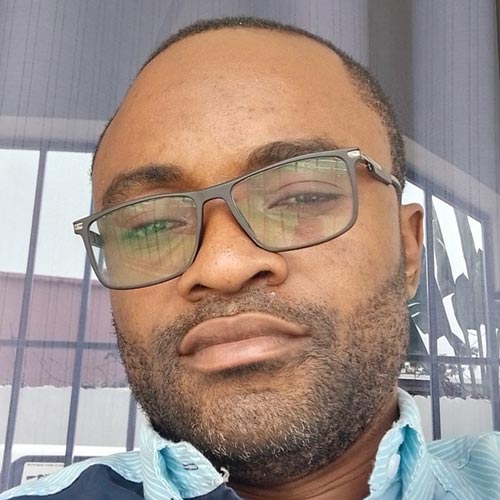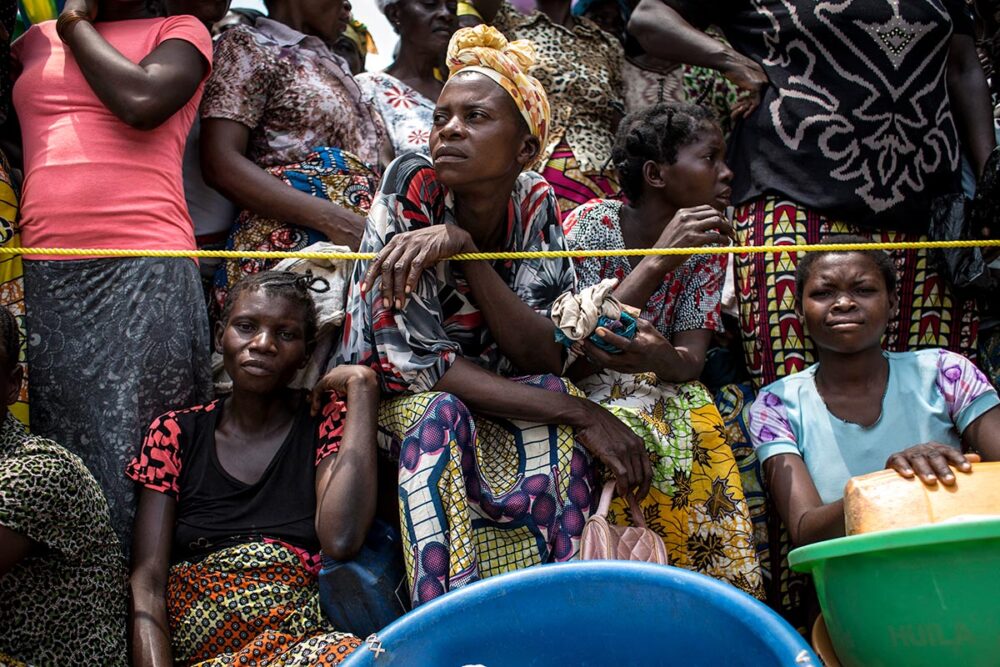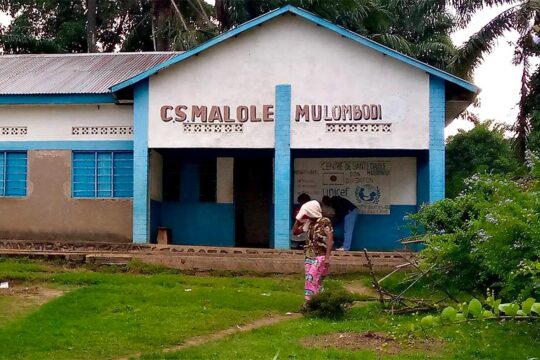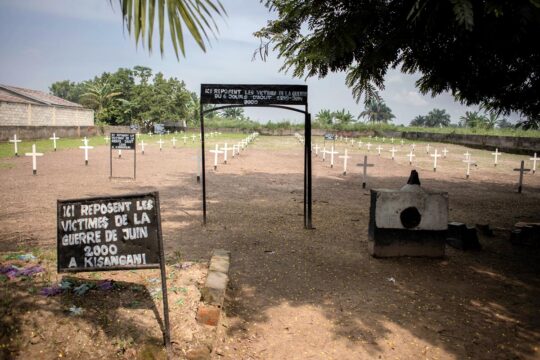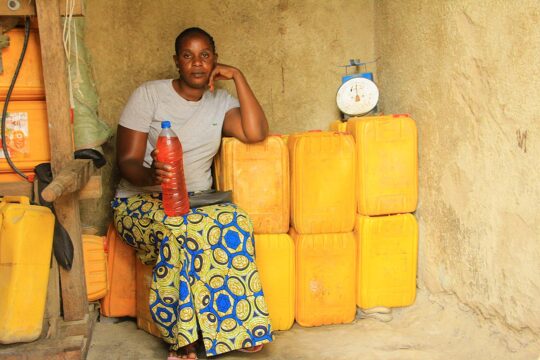A national senator, Hubert Mbingo, a general in the Congolese national police force, Polydore Omokoko, and an executive secretary in the provincial government of Kasai, Sylvain Pitshi Ndambi, were among the eleven defendants in this long-awaited trial in Kasai province, which opened on May 20 before the military court of former Kasai-Occidental (now Kasai and Kasai-Central provinces) in central Democratic Republic of Congo (DRC).
They were charged with participation in an insurrectional movement, crimes against humanity, war crimes, illegal possession of weapons, criminal association and terrorism. According to the prosecution, these acts were committed in 2017, at the height of the Kamwina Nsapu conflict, which caused the death of hundreds of people and the exile of at least 1.5 million Congolese.
A senator and a general accused
Mbingo and Omokoko, respectively vice-governor of Kasai and colonel of the Congolese national police at the time of the events, are accused of having been leaders of the Bana Mura militia, which allegedly acted on behalf of the government in power. This militia, considered responsible for ethnic violence, is said to have received orders from these men to commit acts of violence, particularly in Kamonia, a town 75 kilometres from the Kasai provincial capital Tshikapa.
According to a source close to the case, only one of the eleven accused, Tshitsho Lopupu, is currently in detention; all the others are free. Only four of them were present before the military court: Tshitsho Lopupu, Kabundi Mulamba Touré, Ihongo Kayikula Radjabu and Pitshi Ndambi. None of the other seven defendants turned up at the court.
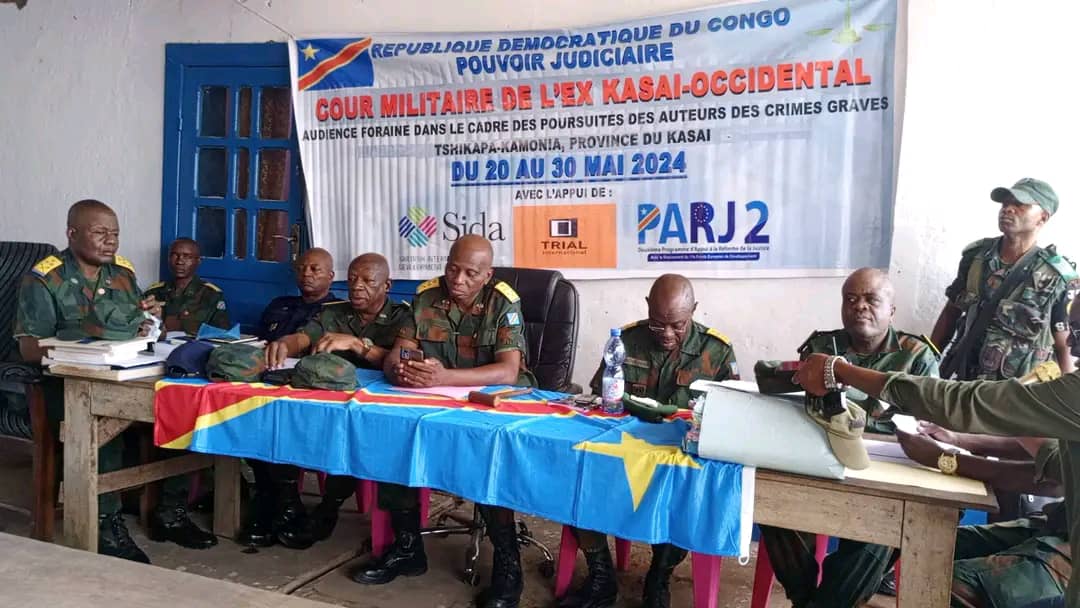
Kamwina Nsapu vs Bana Mura
The Kamwina Nsapu insurrection pitted militiamen loyal to Jean-Pierre Mpandi (Kamwina Nsapu), assassinated in August 2016, against the national security forces for three years, between 2016 and 2019. The rebellion began in the territory of Dibaya in Kasai-Central and then spread throughout the Kasai region, which comprises five provinces: Kasai, Kasai-Central, Kasai-Oriental, Lomami and Sankuru. In response to this insurrection by the Kamwina Nsapu militia, the authorities in power at the time allegedly created a militia, the Bana Mura. They have always denied this.
The Bana Mura came from non-Tshiluba speaking Bantu populations (Pende, Chokwe and Tetela), while the Kamwina Nsapu were Tshiluba speaking Bantu (Luba, Lulua). In the town of Kamonia, it was a Tetela, Polydore Omokoko, at the time a colonel, who is said to have organised the Bana Mura by distributing weapons to them.
Testimonies gathered by UN investigators point to this complicity between State services and the Bana Mura in the first half of 2017. At least 251 people were victim of extrajudicial executions and targeted killings between March 12 and June 19, 2017, including 62 children, reports the United Nations Mission in the DRC, which has identified at least 80 mass graves in the region. Cases of rape have also been reported.
“The court does not try generals”
Seven years after the events, the DRC’s military justice system managed to organize this trial. The Kasai Occidental military court, based in Kananga (in what is now Kasai-Central province), travelled more than 300 kilometres to hold mobile court hearings in Kamonia and Tshikapa, now the provincial capital of Kasai. The defendants were expected to face 119 victims recognized as civil parties. Only 78 of them, mainly women, were heard in Tshikapa and Kamonia.
But after only eight days of hearings, the military court declared itself incompetent to try the case. “No judge can change individual jurisdiction,” ruled first president of former Kasai Occidental military court Innocent Mayembe, bringing the trial to an end. “When your court is not empowered to judge a case that is beyond your jurisdiction, you have to let it go. In the present case, there is a general. This military court does not try generals.”
Because of their rank and high level of responsibility, the competent jurisdiction in the case of these personalities is the Military High Court, which sits in Kinshasa, according to the Tshikapa court. According to procedure, all the other defendants in the case must also answer to the court that has jurisdiction over the highest-ranking defendant, i.e. the general, explains Ahmed Useni, a law professor at the University of Kinshasa. The trial is therefore cancelled for all the defendants.
“The law has been torpedoed”
The defence is satisfied. “The senator, the general and the executive secretary of the provincial government who has ministerial rank should not have appeared before this military court,” says Godet Kulenfuka, president of the defence lawyers’ collective. He adds that they are prepared to defend their clients if brought before the right judges.
The civil parties were stunned. “We’re disappointed because we think the law has been torpedoed,” laments Michelin Pungi, lawyer for the civil parties. He rejects the argument of the defendants’ status, arguing that the judge should have respected the “intangibility of the facts” principle by judging the defendants according to their status at the time of the alleged acts.
Which jurisdiction for which court?
The question of the judicial courts’ jurisdiction related to status of the accused often arises in trials in the DRC. Some courts give priority to the status of defendants at the time of the events, while others argue that their status at the time of the trial should be taken into account.
This problem arose during the trial of former prime minister Matata Ponyo (2012-2016) in a case of embezzlement of more than 200 million dollars for the Bukanga Lonzo agro-industrial park, a project launched in 2014. Under the DRC Constitution, “the Constitutional Court is the criminal jurisdiction for the Head of State and Prime Minister”. In the Ponyo case, the defence argued that the Constitutional Court had no jurisdiction to try a former Prime Minister. That high court declared itself incompetent in 2021, before backtracking after a Court of Cassation decision in 2022. Initially scheduled to begin in July this year, investigations of this case are due to start on July 22. This new procedure is still only in its infancy.
For Professor Useni, the jurisdiction privilege does not mean impunity, but is intended to prevent the defendant getting the better of the judge. As soon as a court declares itself incompetent, it is up to the civil parties to go to the competent one, he explains. With regard to the Bana Mura trial, the victims’ lawyers will be taking their case to the Military High Court.
Kasai: convictions only for militiamen
Another trial linked to the Kamwina Nsapu conflict opened in March 2023 in Kinshasa. This was the Mulombodi case, involving two high-ranking officers. But it has been at a standstill for a year: the court is due to be reconstituted, with judges having been transferred to other regions. So as soon as trials concern state officials, the case gets complicated. In the Kasai region, four trials resulted in convictions for war crimes against Kamwina Nsapu militiamen: in the village of Mayi Munene (Kasai province), in Kongolo Moshi (Kazumba territory) and in Bana Ba Ntumba (Dimbelenge territory) and Kananga, in a case on the murder of two UN experts in Kasai Central.
At the end of 2021, the Société congolaise pour l'État de droit (Congolese Society for the Rule of Law), one of the most active NGOs in Kasai, expressed in a press release “serious doubts about the government’s determination to combat impunity” in the province.

